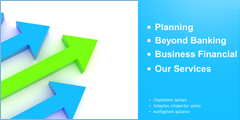Small Business Administration (SBA) Loans
The term Small Business Administration (SBA) refers to a U.S. government agency that is designed to bolster and promote the economy by assisting the country's small businesses. Established in 1953, the SBA's largest function is to counsel individuals who want to start and grow their own businesses. It provides a series of tools on its website to assist new and existing small business owners. The agency is headed by an administrator and deputy administrator and also has a chief counsel for advocacy and inspector general—all of which are confirmed by the Senate. The SBA has at least one office in every state.

The Small Business Administration offers substantial educational information with a specific focus on assisting small businesses to develop and grow. As noted above, the agency has numerous tools for businesses that can be accessed on its website, including a small business planner and additional training programs. The SBA has many resources available for people who want to start their own small businesses. If you're one of those people, this section highlights some of these resources that can take you from start to finish.
The loan programs offered through the SBA are among the most visible elements the agency provides and come with longer repayment periods for small businesses. Keep in mind that the agency doesn't actually issue loans—with the exception of disaster relief loans. Instead, loans are backed or guaranteed by the SBA and issued directly by lenders that meet the agency’s guidelines. Small businesses qualify for loans more easily when they are guaranteed by the SBA. The agency also allows entrepreneurs to make lower payments for a longer period of time. Despite numerous attempts to do away with the SBA entirely, many political officials and offices continue to support the agency. The SBA’s ability to offer loans has also been significantly strengthened by the American Recovery and Reinvestment Act (ARRA) of 2009 and the Small Business Jobs Act of 2010.
Considerations

Often the price of a business loan is stated in terms of an interest rate, points and other fees. A point is a fee that equals 1 percent of the loan amount. Points are usually paid to the lender, Business Finance Consultant, or both, at the settlement.
Often, you can pay fewer points in exchange for a higher interest rate or more points for a lower rate. Ask ACE Capital Resources about points and other fees.
Apply Now!Things You Should Know!
If you see advertisements for lenders offering extremely low rates, don't be misled. Most of the time these very low rates refer to the starting rate on an adjustable rate mortgage or graduated payment mortgage. In other cases, the rate advertised may be for a balloon loan. This is a loan where the remaining balance will have to be paid off early. An example of this is called a 30 due in 5. In this type of loan your payments are based on a 30-year term to make them affordable.
The remaining balance of the loan however, must be paid off at the end of the 5th year. This means that you will probably have to refinance the loan or sell the house at the end of 5 years to satisfy the debt. Locking in your rate or point at the time of application or during the processing of your loan will keep the rate and/or points from changing until settlement or closing. Ask if there is a fee to lock-in the rate and whether the fee reduces the amount you have to pay for points. Find out how long the lock-in is good, what happens if it expires and whether the lock-in fee is refundable if your application is rejected.

There is no single nationwide finance rate; interest rates can vary according to the amount of the business loan, the length of the loan and from lender to lender. Look at the entire package that's being offered, including the fine print about penalties and assumptions. The more knowledgeable you are about the loan process, there will be fewer surprises in store for you at closing.
Lease or Buy?
The first thing you need to know about equipment leasing is that it is 100% financing. Because a lease is essentially a "rental" of equipment, there is usually no down payment required to access the equipment your business needs. This directly contrasts most commercial bank equipment loans, which require a minimum of 10% and as much as 50% down payment. By comparison, most equipment leases will require only the first and last payment in advance of delivery. Even if you only need a small amount of equipment, this can result in a tremendous reduction in the "out of pocket expense" necessary to upgrade your equipment. This gives you the opportunity to put thousands of dollars of working capital back into your business, instead of giving it to your banker.
Apply Now!Financial Calculators
Equipment Lease & Loans
If you don't understand the difference between a lease and a loan, you are not alone. Many business owners continue to finance their equipment the "old fashioned" way, through loans, because they don't fully understand the potential benefits of leasing their equipment.
These benefits can be seen in four important areas, initial cost, equipment obsolescence, tax benefit and off balance sheet financing. Because of these benefits, many business owners are realizing that they do not need to own their equipment in order to conduct business. They only need to use it.
Helpful Tips
-
Economic Obsolescence occurs when a business equipment cannot keep up with the demands of the market or lacks the technology to help the business remain competitive. Leasing helps avoid obsolescence by allowing you to upgrade every few years. In other words, if the equipment appreciates, buy it. If the equipment depreciates, lease it.
